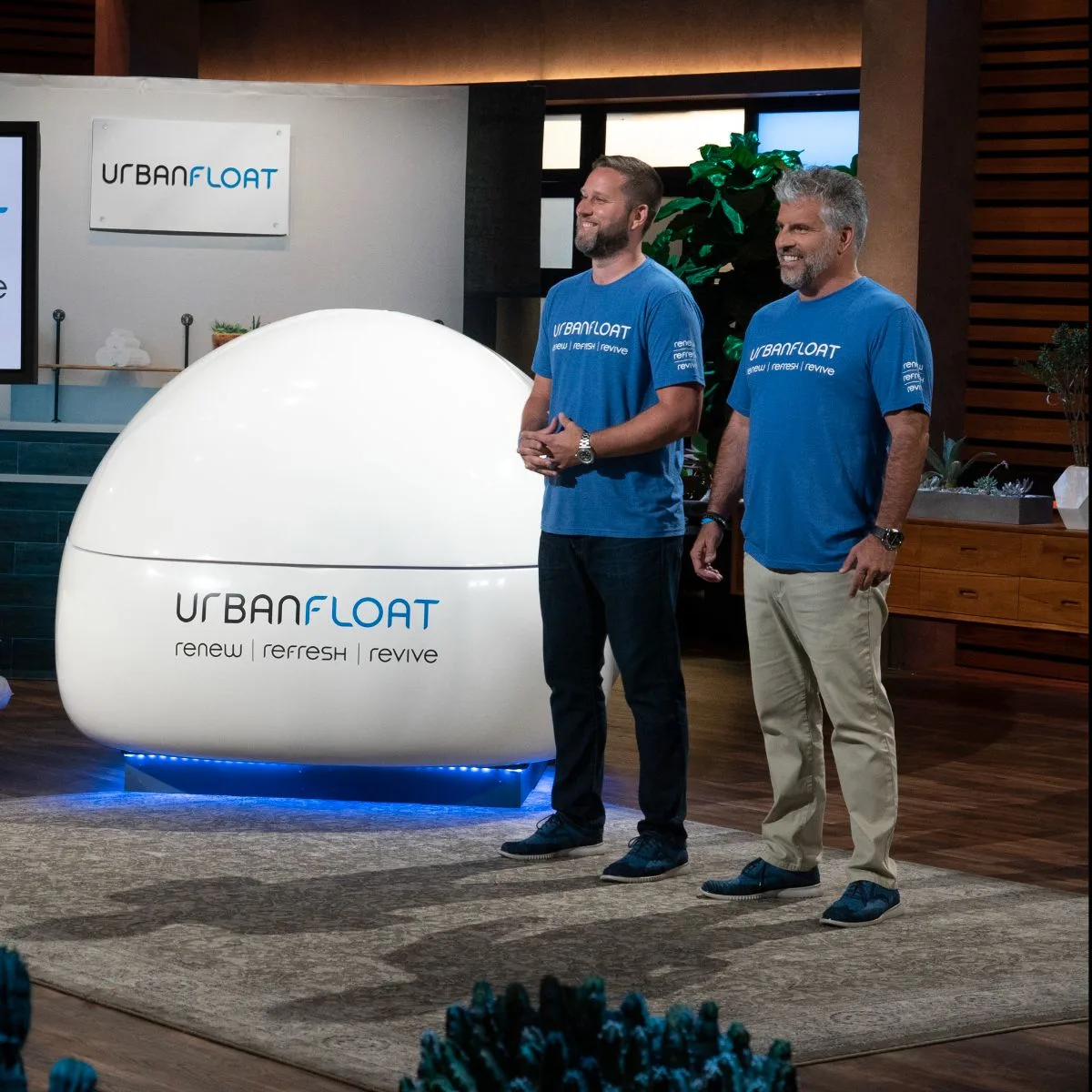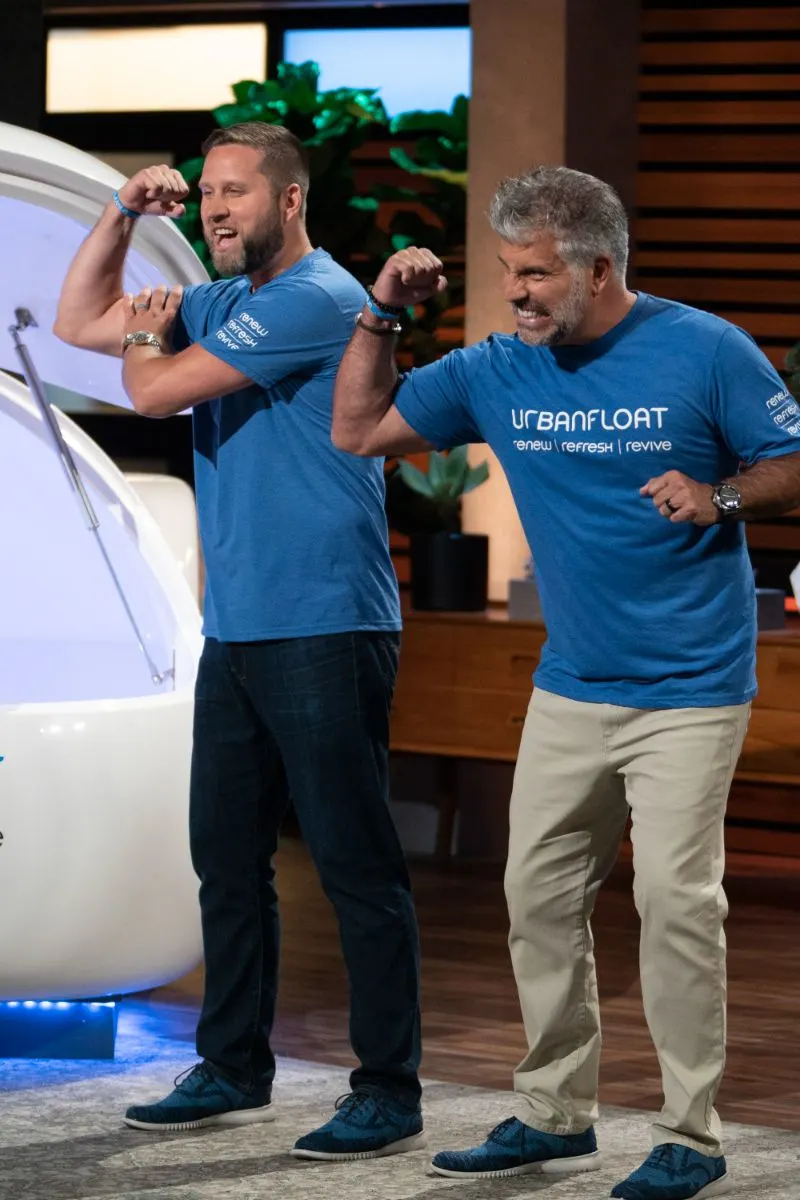What is Urban Float’s net worth?
Urban Float has a net worth of $5 million. There’s a global tech trend at the moment that is claiming some pretty impressive benefits.
Benefits like relief from aches and pain, improved sleep quality, stress reduction, better mental clarity and focus, boosted creativity, reduced anxiety, increased optimism and mental well-being, overall muscle relaxation, and general happiness.
Whether or not the trend can live up to the hype is a different story—but what is this magical new technology?
As it turns out, it’s not new at all—humans have been doing it forever.
It’s called floating.
Sadly, you’re going to need access to a calm body of water, access to a swimming pool, or your own private—and very big—hot tub to take advantage of it.
At least, that was the case before Urban Float.
The company gives clients access to what used to be called a sensory deprivation tank—a peaceful, hydro-therapy spa that allows you to float effortlessly for up to 90 minutes at a time.
With light- and sound-control, a massive amount of toxin-clearing Epsom salts, and total silence, an Urban Float pod suspends gravity and leaves you feeling weightless—for a price.
The Urban Float business has been founded on the theory of flotation therapy, and seems to be drawing in crowds across the US.
But how successful is it really?
Where did it start?
Who is the founder of Urban Float?
And most importantly, what is Urban Float’s net worth?
Read on to find out.

@Getty
Who are the founders of Urban Float?
Urban Float was founded by Joe Beaudry and serial startup entrepreneur Scott Swerland, and stemmed from a pretty strange introduction.
Beaudry had been on a wellness journey to reduce stress and improve his cognitive performance in the corporate world.
He stumbled across a community of self-proclaimed floaters—people who used flotation chambers or spas for their health and wellness benefits.
He was intrigued.
Unfortunately, the only place to try it was at a stranger’s empty rental property for $1 a minute.
That didn’t stop Joe, who booked it to the empty house to see what the big deal was.
That decision—and the incredible experience that came with it—would change the trajectory of Beaudry’s life.
The following year he reached out to entrepreneur Scott Swerland hoping to build a partnership and get some guidance around scaling his business model.
Swerland grabbed his kids and took them for their first float.
He, too, was hooked, but he also saw a hole in the market that could take floating to the next level.
Within 12 months of that first meeting, the pair had opened their first Urban Float office in Seattle.
Their next step was fine-tuning and expansion, and that was going to take an estimated half a million dollars.
Fortunately for the motivated duo, they scored a spot to pitch their idea on ABC’s Shark Tank.
Into the Shark Tank

@Getty
Beaudry and Swerland appeared on Shark Tank in season 6, episode 10, in 2014, willing to sell a 5% stake in their business for an investment of $500,000.
It was a big ask, but guest Shark—and Miami Dolphins vice chairman—Matt Higgins saw the potential in the idea.
Through his involvement in the NFL industry, he had seen float tanks used with some success in professional sports.
He initially offered the pair the full $500,000 for a 15% stake in Urban Float, which the pair turned down.
His final offer was the same investment but with a 12.5% equity exchange, which Scott and Joe accepted.
Where is the company now?
Following Urban Float’s debut on the ABC network’s hit show, the company experienced a period of massive growth.
Beaudry and Swerland were prepared for it, understanding that the show would instantly boost brand awareness and provide the company with a level of exposure they could never have emulated on their own.
That level of exposure also helped the pair to share the benefits of floatation therapy, and to provide others with the same positive experience they had enjoyed—with some perks.
Thanks to Swerland’s understanding of retail and customer service, Urban Float has been able to elevate the user experience that comes with float chambers.
Over the next few years, the company expanded geographically, too.
At the time of writing, it boasted six locations in Washington, one in Ohio, one in Texas, and another in Delaware.
As a franchisor, it also opens up the door for new business operators to become involved.
READ MORE: SignalVault Net Worth
Net Worth & Revenue
So, how much is Urban Float worth? When Urban Float first approached the Shark panel, they were in a precarious position. The company had grossed $1.1 million in sales for the previous year, and had a positive cash flow of $600k. But they were also carrying $1 million in debt.
In 2017, Urban Float brought in $1.3 million in revenue, and reported similar returns in 2018 and 2019. These days, potential franchisees can expect to invest between $450,000 and $1.06 million into their Urban Float franchise, plus an annual franchise fee of $40,000. Therefore, Urban Float has an estimated net worth of $5 million.
READ THIS NEXT: Is Wanna Date still in business?

